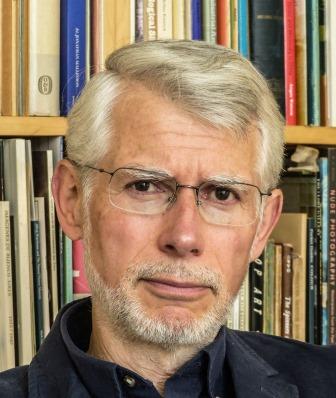17 January 2020
“Tristram Hunt seems to be exploring the issues some of us started to raise twenty years ago as if they are new. Contested narratives and ownership, etc. But a welcome improvement on the monotonously presumptive and culturally hegemonistic voice of Neil MacGregor.” Tristram Besterman

BBC Radio Four, Curating the Future
Origins
Episode 1 of 3
Museums have never been more popular around the world or faced such sustained criticism. While the Louvre enjoys record-breaking visitor numbers, Abu Dhabi's Saadiyat Island builds a new museum campus for the Middle East and blockbusters from Leonardo to Van Gogh to David Bowie circle the globe, museums are also under challenge. Critics questions historic claims to neutrality, call for the repatriation of colonial-era artefacts and protest over the origins of sponsors' money.
V&A Director Tristram Hunt begins the series by looking back at the origins of some of the world's oldest museums and galleries, including those founded to tell the story of a nation, to display a royal or colonial collection or to promote technical and educational improvement.
At the Tokyo National Museum, the Pitt Rivers Museum in Oxford and in conversation with the Director of the Rijksmuseum, Tristram asks how foundational ideals can be managed in the post-colonial contemporary world.
To listen follow the link here.
Museums Are Not Neutral
Episode 2 of 3
Museums and galleries remain hugely popular but also face increasing criticism over who visits, who pays and what's on display.
In an era of identity politics, V&A Director Tristram Hunt asks what future museums have when there is no greater sin than 'cultural appropriation', nationalism and nativism decry the multi-cultural stories that galleries tell, and the role of 'experts' is questioned.
With Directors of museums and galleries in London, Derby and Mumbai, Tristram discusses how best to attract new audiences and whether museums should try to promote social justice, transforming their traditional role. He also considers claims that 'Museums Are Not Neutral', explores the co-curation of exhibitions and asks whether 'lived experience’ is as valuable as curatorial knowledge.
To listen follow the link here
Museum of the Future
Episode 3 of 3
In an increasingly digital world, museums are responding to calls for greater digital access and the potential of immersive technology. With the Directors of the Tate, National Gallery and British Museum, Tristram asks whether digital technology undermines or enhances the role and function of museums and galleries. How important is the aura of authenticity or are visitors now more interested in downloading a Rembrandt or Vermeer ?
And, as financial power heads east to the Gulf and China, Tristram explores the wonders of some of the world's newest museums and galleries asks how older institutions can compete.
To listen follow the link here.